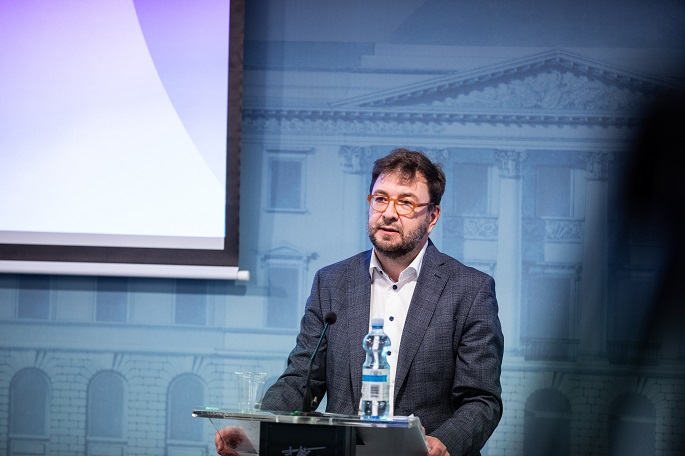Finland does not accept EC´s proposal for TEN-T Regulation: Minister
Published : 02 Aug 2022, 23:50
Minister of Transport and Communications Timo Harakka considered that the new Regulation of the Trans-European Transport Network (TEN-T) proposed by the European Commission is unreasonable for Finland.
Harakka considered that Finland should be given a derogation from the requirement to migrate to a European nominal track gauge, said the ministry of Transport and Communications in a press release on Tuesday.
“Finland does not accept these changes to the rail gauge, and I believe that our views will be heard during further discussions. It is quite clear that Finland’s special conditions must be taken into account and our existing rail gauge must be maintained. Changing the rail gauge would not be economically or operationally feasible. Decisions of this importance should not be made hastily; instead, their impacts should be properly scrutinised,” said Harakka.
In December 2021, the European Commission adopted a proposal for a new Regulation on Union guidelines for the development of the Trans-European Transport Network (TEN-T).
The proposal has been discussed in the working groups of the Council of the European Union and in the European Parliament.
On 27 July 2022, the Commission published a new proposal amending the proposal for the TEN-T Regulation in order to respond to the changed global political situation.
According to the proposal, new rail connections should be developed with a European standard nominal track gauge (1,435 mm) and also a migration plan should be developed towards this European standard nominal track gauge for all existing lines, with the exception of the lines where this is not justified based on a cost-benefit analysis.
Lines where construction has begun before the Regulation’s entry into force will not be considered new rail connections.
In Finland, this obligation would apply to the sections of line currently planned by the project companies, especially to the Finland Railway project company and the eastern rail link project company.
For the project company planning the one-hour Helsinki-Turku fast rail link, the requirement would probably only apply to the new Espoo-Salo section.
The Commission proposed that the last sections of the cross-border connections with Russia and Belarus (the “last miles”) should be downgraded from the core network to the comprehensive network. The European Transport Corridors would then be adapted according to these changes.
For Finland, the Commission proposes that the core railway network be ended in Kouvola (instead of Vainikkala), the core road network in Hamina (instead of Vaalimaa) and the Scandinavian-Mediterranean Corridor be ended on the Kouvola-Kotka-Hamina axle instead of the Russian border.
“These transport connections would remain the responsibility of the TEN-T network, and EU funding would be available for them. However, as any proposed changes must not undermine the position of Eastern Finland, we cannot accept this amendment either,” said Harakka.
The Commission also proposed that the TEN-T network be extended to Ukraine and Moldova, and that Russia and Belarus be removed from TEN-T maps, as the expansion of the TEN-T network to these countries is no longer an objective.
During the drafting process, the Ministry of Transport and Communications has sought to ensure that the requirement concerning the migration to a different rail gauge would not apply to Finland.
The discussion on the proposal to amend the TEN-T Regulation will continue in the Council of the European Union in the autumn, and Finland will continue its efforts to influence the decision-making.
The Finnish Parliament will be informed of the proposed amendment as soon as possible through a follow-up Union communication.


